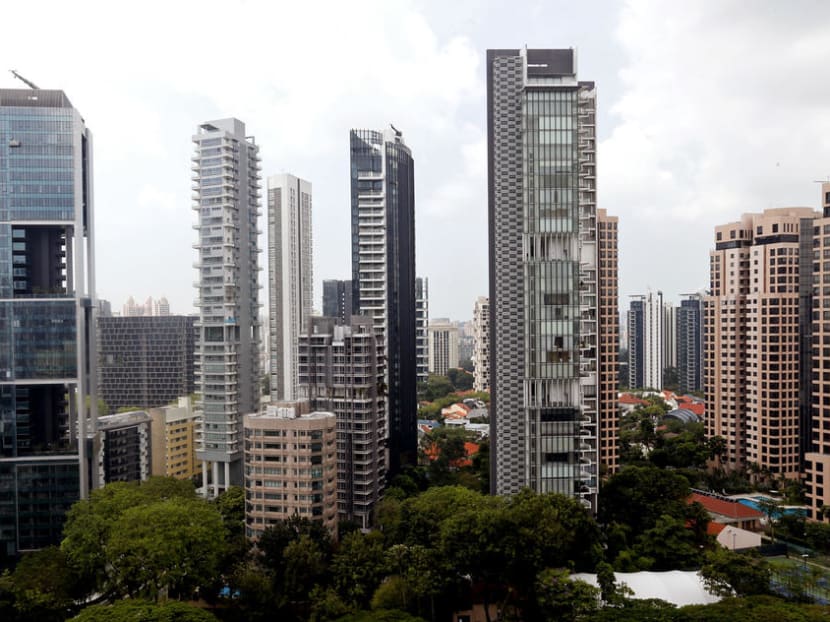Short-term home sharing remains illegal in Singapore; Airbnb disappointed
SINGAPORE — Short-term rentals offered by platforms such as Airbnb will remain illegal in Singapore, the authorities announced on Wednesday (May 8) after nearly four years of discussions.

A minimum stay of three months will continue to apply to private residential properties in Singapore, the authorities said.
SINGAPORE — Short-term rentals offered by platforms such as Airbnb will remain illegal in Singapore, the authorities announced on Wednesday (May 8) after nearly four years of discussions.
A minimum stay of three months will continue to apply to private residential properties.
Citing an “impasse” on the proposed rules between the poisition of home-sharing platform operators and concerns raised by 1,039 private homeowners surveyed by the authorities, the Urban Redevelopment Authority (URA) said it will not proceed with the regulations.
Among the proposals made by the URA last year: A requirement for 80 per cent of owners to consent to short-term rentals in a condominium development, and an annual cap of 90 days for a unit to be used for short-term accommodation.
The URA said it is open to reviewing its position, “if and when platform operators demonstrate that they are prepared to adhere to the regulatory framework”.
THE SURVEY
Producing results of the survey of private homeowners conducted from August to November last year, the URA said the majority felt short-term rentals would have a negative impact on other residents.
Nearly seven in 10 felt short-term rentals would raise security concerns in their estate (68 per cent) and result in loss of privacy (67 per cent) for residents
More than six in 10 felt short-term occupants could misbehave and cause noise and other disturbances
More than half (56 per cent) felt such occupants may damage common facilities
About seven in 10 (69 per cent) supported the 80-per-cent threshold for consent in a strata-titled development, and the 90-day annual cap on short-term stays
Those surveyed recognised that short-term rentals could provide an income supplement, but only 7 per cent said they intended to let out their homes should short-term rentals be allowed.
WHAT AIRBNB, HOMEAWAY AND ANALYSTS SAID
Home-sharing platform operators said they would continue to work with the Government, but analysts said the URA’s announcement was no surprise and would provide a fillip to hotels.
“The decision is rather unsurprising although it took several years for the government to come to such a decision,” said Ms Christine Li, head of research for Singapore and South-east Asia at real estate services company Cushman and Wakefield.
Calling it a “sensible move” to safeguard the interest of residents in private properties, she said their concerns are genuine and arise from the fact that Singapore is one of the most densely populated countries in the world.
The Government is not taking the matter lightly, “especially when the beneficiaries of short-term accommodation would be mainly the property investors”.
The decision will help to support demand for mid-tier and economy hotels from leisure travellers, said Ms Li.
Together with limited growth expected in the supply of hotel rooms in the next few years, it will prop up hotel occupancy and room rates, barring any shock to the global economy, she said.
Ms Mich Goh, Airbnb’s head of public policy for South-east Asia, said: “After nearly four years of consultation, it is disappointing that the discussion has not moved forward.”
The platform operator remains committed to working with the Government towards a way forward for its community of hosts in Singapore and guests who use Airbnb, she said.
In recent years, various governments have allowed short-term rentals and “by sticking with the status quo, Singapore remains the exception”, said Ms Goh.
Airbnb said it has tools that help hosts comply with local laws and that it is willing to work with the Government to use or modify the tools to support home-sharing in Singapore.
Another operator, HomeAway, said the URA’s decision shows it recognises the complexity of the issue and needs more time to study it.
HomeAway stands ready to partner with the Singapore Government to create a sustainable framework that “does not penalise bona fide operators like ourselves and present high barriers to entry that risks driving the industry underground”, said Mr Ang Choo Pin, its senior director of government and corporate affairs in Asia.
HomeAway is a representative director for the newly established Japan Association of Vacation Rental, he said.
HomeAway has helped lead discussions with the Japanese regulator, culminating in a viable framework to legalise short-term rentals last June, he added.
In its statement, the URA said several platform operators felt the proposed rules were overly restrictive and wanted a “lighter touch approach”.
“It is understandable that the platform operators would be driven by their commercial imperatives. But it is not tenable for URA to allow a more relaxed regulatory framework that does not address the concerns raised by Singaporeans,” it said.









